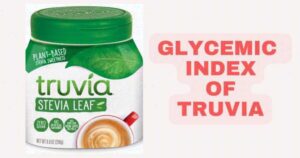Is watermelon good for dogs? That’s the question this article will answer as we delve into the truth behind the fruit’s alleged fetching qualities and find out just how safe it is to give your canine companion some slices from your dinner plate. In short, watermelon isn’t poisonous to your dog, but it isn’t necessarily healthy, either.
It’s been said that watermelon isn’t good for dogs because it’s full of sugar, but it turns out that’s a myth! Watermelon actually has several health benefits for canines and humans alike, plus it’s delicious! The next time you’re at the grocery store and debating whether to buy some watermelon for your dog, remember these three important facts about this summer treat to make sure your pooch is safe and healthy.
Watermelon contains several nutrients that dogs need to remain happy and healthy, making it one of the best foods you can feed them. However, there are also some important facts about giving watermelon to dogs, you should be aware of before feeding this delicious fruit to your pup. So if you want to know whether you should feed your dog watermelon, keep reading to learn more!

Are there any health benefits of watermelon for dogs?
Pet owners love giving their pets a little something special now and then. It can be tempting to share food with your dog, but it’s important to know if there are any benefits of watermelon before giving your dog. While there are some health benefits of watermelon for humans, these may not apply to your pooch. Before you give him anything from your plate, learn more about if watermelon is safe for dogs. You’ll also want to make sure that he doesn’t have any allergies or other conditions that could cause issues when eating certain foods. You can ask your vet or do some research online to see what others have experienced with regard to feeding their dog’s watermelon.
Be aware that while watermelon isn’t toxic for most animals, it can still upset his stomach and make him sick if he eats too much at once. Always introduce new foods slowly so that you can watch for reactions like vomiting or diarrhea as signs that he has an allergy or intolerance to a particular ingredient in whatever you’re feeding him. Talk with your vet about how much is too much when feeding your dog anything new, including fruit like watermelon!
Are there any risks to feeding your dog watermelon?
While dogs can eat watermelon, it does come with some risks. Some dogs have sensitive stomachs, and eating watermelon can cause nausea or diarrhea. These aren’t necessarily serious risks, but they are definitely something to watch out for when you give your dog watermelon. It also is a good idea to make sure that your dog doesn’t try to eat too much watermelon at once, since it contains a lot of sugar. If your dog eats too much and gets into trouble, take him to a vet right away.
At first glance, feeding your dog watermelon may not seem like it presents any risks—but it’s best to be careful before giving him any fruit or veggies. Also, always make sure that your dog has plenty of fresh water to drink. This will help keep his kidneys healthy as well as flush out any excess waste from his body. Finally, keep in mind that while dogs can eat watermelon safely most of the time, there are exceptions where it could potentially cause harm if eaten in large quantities. Talk to your vet about whether it’s safe for your specific dog.
Why do dogs like watermelon so much?
You’re probably wondering how a dog can eat watermelon. But according to Pet MD, watermelons are mostly made up of 92% water and 6% sugar; which is an easy way for dogs to hydrate themselves if they get hot or dehydrated during a hot summer day. So yes, it is totally fine for your dog to have some melon now and then. In fact, in most cases, it will only help boost their immune system and help them stay cool on those hot days out with you at play time or on walks around town.
Just make sure not to give them more than 1/4 cup per 10 pounds of body weight per day because that can cause diarrhea. Also, don’t give your dog a whole piece as it could be a choking hazard. Instead, cut it into small pieces so that he can enjoy just enough without overdoing it. It’s best to check with your vet before giving him any fruits or vegetables other than his regular diet, though, just to be safe and make sure there aren’t any allergies or digestive issues that could come about from eating something new like melon.
When should you avoid giving watermelon to your dog?
There are some instances when watermelon can actually be harmful to your pet. If you have a dog with kidney disease, eating large amounts of watermelon could cause damage or even death. It’s also possible that if you feed your dog too much watermelon, they could end up having diarrhea. Giving watermelon to dogs can also result in low potassium levels, so make sure that you don’t feed them any other foods that might decrease their potassium levels.
But most importantly: don’t let your dog eat under-ripe watermelons, which can result in stomach upset and potentially an intestinal blockage (yikes!). So, what should you do if you want to give your dog some delicious slices of watermelon during a hot summer day? Make sure it’s ripe first! You can test for ripeness by gently pressing on it—if it gives slightly, then it’s ready to go. Otherwise, leave it out for another day or two until its flesh is soft enough to cut through easily. And remember—you can always check with your vet before giving your dog any new food item!
How much does my dog need?
First, it’s important to clarify that dogs don’t need any food — water is all they need to live. However, just like humans, dogs can benefit from eating fruits and vegetables. Since your dog doesn’t have a biological requirement for watermelon, it is up to you if you’d like to feed him some or not. Some people suggest that dogs can eat small amounts of watermelon without side effects, but in truth, we really don’t know how safe it is for them to eat. If you do decide to feed your dog watermelon, remember that moderation is key. If you’re unsure about whether your dog can eat watermelon safely, check with his veterinarian first.
Can dogs eat watermelon rind?
Yes, dogs can eat watermelon rind. In fact, if your dog is on a mostly-vegetarian diet, you could probably get away with giving him/her watermelon for every meal and nothing else – as long as it’s made up of high-quality ingredients. Make sure to cut off any parts that may have pesticide residue before feeding your dog so that he doesn’t consume any chemicals. It’s also important to note that although dogs can eat watermelon rinds (and most fruits and vegetables), they shouldn’t be eating those things in excess because they’re still really high in sugar content and could negatively affect their health if consumed too often. If you want to feed your dog fruit or veggies, stick to organic ones that don’t contain unnecessary additives.
Can dogs eat watermelon seeds?
Another yes! But only some types of seeds are okay for them to ingest. Again, make sure there aren’t any pesticides on them and always remove inedible parts like stems or shells first before serving them to your pooch. Also keep in mind that while small amounts are okay, large amounts can cause digestive issues or stomach pain. And while they can eat both white and black seeds from a watermelon (assuming they’re organic), just make sure not to give them too many at once because these seeds are harder than others and might damage their teeth over time if ingested regularly.
Can puppies eat watermelon?
Puppies can eat watermelon. While there are few documented cases of puppies being poisoned by eating watermelons, it’s possible that a pup could develop diarrhea or get an upset stomach if given too much of a good thing. Some puppies might be lactose intolerant and thus experience GI issues with eating too much melon at once. In general, however, watermelon is fine for pups—and they might even find it delicious! Feeding your puppy a bit at a time on hot days can help keep them hydrated without causing any harm to their tummies. Be sure to cut up any melon into small pieces so as not to risk choking. And always make sure you check with your vet before giving anything new to your pooch.








